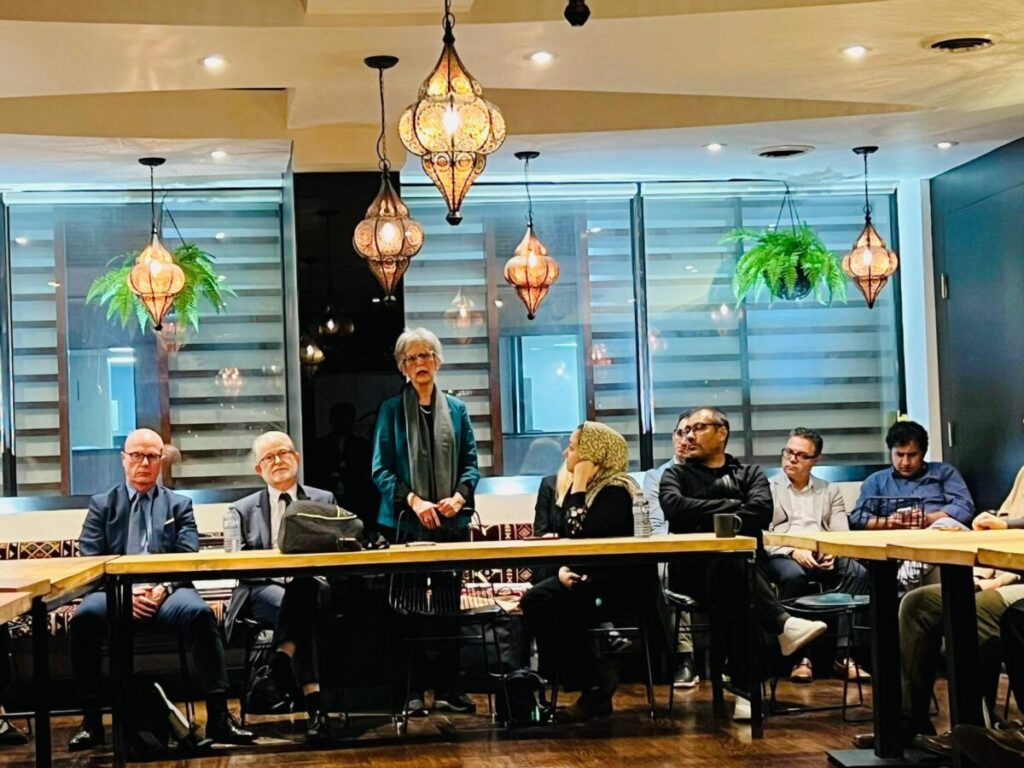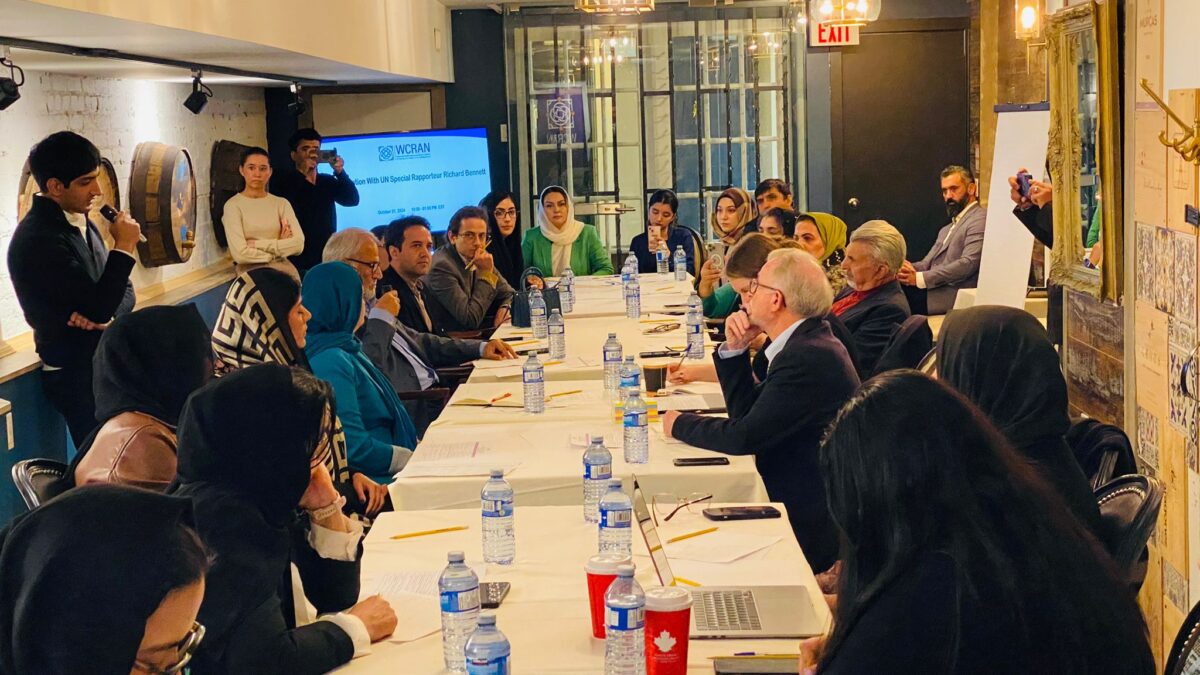TORONTO — Richard Bennett, the United Nations Special Rapporteur on Human Rights in Afghanistan, underscored the severity of the human rights crisis in the country during a meeting with Afghan activists in Toronto. Bennett’s visit to Canada includes discussions with Canadian officials and members of the Afghan diaspora as well as activists and journalists, focusing on the deteriorating situation under Taliban rule.
One event on Wednesday, organized by the Research and Advocacy Network for Women and Children, brought together dozens of Afghan-Canadian activists, including former parliamentarians, university professors, journalists, and civil society leaders. Bennett highlighted the urgency of addressing the escalating human rights violations in Afghanistan, particularly concerning women and ethnic minorities.
“The human rights crisis in Afghanistan is deeply concerning and demands serious attention,” Bennett said, adding that his mandate as the UN Special Rapporteur has been extended. He is expected to release two reports by June next year detailing the human rights situation in Afghanistan under Taliban rule, incorporating insights gathered from Afghan citizens both within the country and abroad.
During his remarks, Bennett thanked the organizers for facilitating the meeting, which marked his first consultation with Afghan activists in Canada. “I am grateful to see such a diverse group of Afghans here—former parliamentarians, women’s rights activists, journalists, and youth. Your perspectives are invaluable,” he said.
Zarqa Yaftali, head of the Research and Advocacy Network for Women and Children, commended Bennett for his ongoing efforts to document human rights abuses in Afghanistan. “The situation, particularly for Afghan women, is gravely concerning,” Yaftali said. She called on the international community to recognize the “gender apartheid” enforced by the Taliban. “What Afghan women are enduring under the Taliban’s rule is brutal and horrific. The world has a responsibility to act,” she added.
Former Afghan parliamentarian Muhayuddin Mahdi echoed these concerns, citing the systematic denial of citizens’ rights and the erasure of their identity and language by the Taliban. He called for a political restructuring and dialogue among Afghanistan’s ethnic groups as the only path to resolving the country’s ongoing crisis.
Women’s rights activist Jamila Afghani also spoke at the event, expressing alarm over the increasing restrictions on women’s work and daily life. Former parliamentarians Qazi Rahela Salim and Khadija Elham urged Bennett to ensure that the atrocities committed by the Taliban are explicitly highlighted in future UN reports. “The world can no longer remain silent in the face of these crimes,” they said.
During the second part of the meeting, participants formed working groups to gather and present their written recommendations to Bennett and his team. Bennett later held private discussions with Afghan women’s rights activists residing in Canada.
The situation of women’s rights in Afghanistan was a central theme of the meeting. The Canadian Feminist Association for Afghanistan, led by Nargis Nehan, shared a statement on social media, saying, “Despite the challenges of resettlement, these women continue their work for Afghanistan, amplifying the voices of their sisters back home.”
Meanwhile, Afghan journalists in Canada also held a meeting with Richard Bennett to express growing concerns over the deteriorating situation for the media under Taliban rule.

The journalists described the state of press freedom in Afghanistan as “dire,” noting that restrictions on free expression have escalated since the Taliban regained power.
David Sproule, Canada’s Special Envoy for Afghanistan, and Noorjehan Mawani, former Ambassador of the Aga Khan Development Network, also attended the meeting, which drew about 40 journalists and media representatives, according to a statement from the Freedom Speech Hub, a Canada-based journalists rights foundation.
The gathering comes amid recent moves by the Taliban to tighten their control over the media, including a new law that bans filming in certain provinces. Additionally, at least three local television stations in Takhar province, in northern Afghanistan, have been forced to cease operations.
Journalists at the meeting emphasized the increasing challenges facing those still working in Afghanistan, with many saying that press freedom has all but disappeared.
The United Nations had earlier announced Bennett’s visit to Canada, where he was expected to meet with government officials and discuss the human rights crisis in Afghanistan. His trip included a stop in Toronto to engage with Afghan human rights defenders and journalists.





